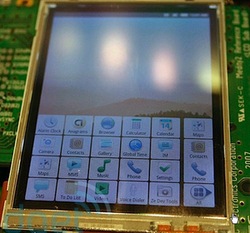 Android has landed. And it looks like, well, some sort of space alien.
Android has landed. And it looks like, well, some sort of space alien.
Several companies at this week’s Mobile World Congress unveiled prototypes of Android, Google’s highly anticipated, open-source operating system. But rather than showing off sleek, sexy cell phones, with a super-fast OS running groundbreaking applications, attendees were treated to reality.
Android, for now, is mostly a bunch of circuit boards, displays, solder, prototype “phones”, and “alpha” applications intended to show the mobile world that yes, in fact, Android and the so-called Gphones do exist and, to some degree, work. They’re not vaporware.
“It’s not fair to laugh at the huge circuit boards: These are design prototypes and will of course be shrunk down to a fraction of this size,” Charlie Sorrel writes for the Wired’s gadget lab.
“But despite the fugly appearance, these Android phones are the buzz of the show. At the NEC booth, the guy pointed me straight past the other boards saying, ‘This one is the Android. That’s the only one anybody is interested in.’”
So, without further ado, here’s Android in all its, uh, splendor. Continue reading »
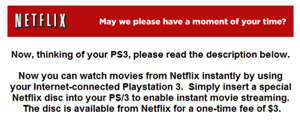 According to at least one source, Netflix has been conducting some very specific market research with regards to its Internet TV service being delivered on Sony’s PlayStation 3 and Microsoft’s XBox 360.
According to at least one source, Netflix has been conducting some very specific market research with regards to its Internet TV service being delivered on Sony’s PlayStation 3 and Microsoft’s XBox 360.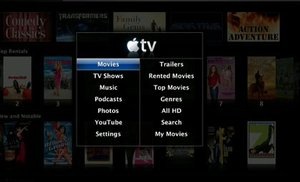 I’ve been waiting 330 days for this. With the release of the AppleTV Take 2 software update, the original AppleTV finally resembles the device it should have been on Day 1, the day I purchased it.
I’ve been waiting 330 days for this. With the release of the AppleTV Take 2 software update, the original AppleTV finally resembles the device it should have been on Day 1, the day I purchased it. U.K. music download provider
U.K. music download provider  Android has landed. And it looks like, well, some sort of space alien.
Android has landed. And it looks like, well, some sort of space alien.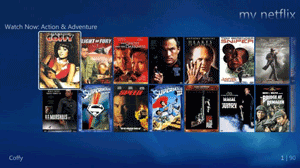
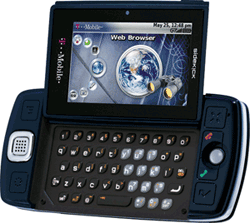 Long before Apple’s iPhone, another Silicon Valley-based company pioneered the consumer-friendly smart phone. That company was Danger Inc. best known for its T-mobile branded Sidekick (the Paris Hilton
Long before Apple’s iPhone, another Silicon Valley-based company pioneered the consumer-friendly smart phone. That company was Danger Inc. best known for its T-mobile branded Sidekick (the Paris Hilton 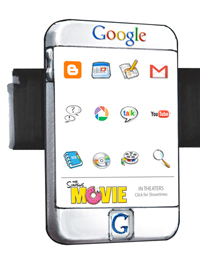 It’s a big week coming up in the Mobile Web world. The annual
It’s a big week coming up in the Mobile Web world. The annual  One of my favorite times of the year are the first two days of the annual NCAA Men’s Basketball Championships, better known as March Madness. I sit on the sofa in a stupor, watching games from morning till midnight.
One of my favorite times of the year are the first two days of the annual NCAA Men’s Basketball Championships, better known as March Madness. I sit on the sofa in a stupor, watching games from morning till midnight.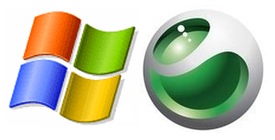 Microsoft and Sony Ericsson shout “Enough is enough!”
Microsoft and Sony Ericsson shout “Enough is enough!”